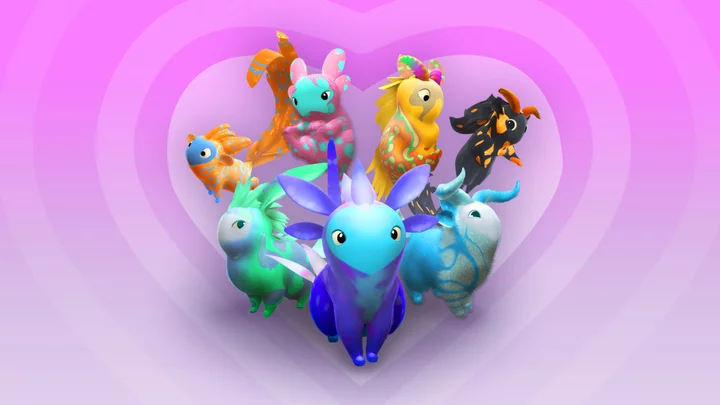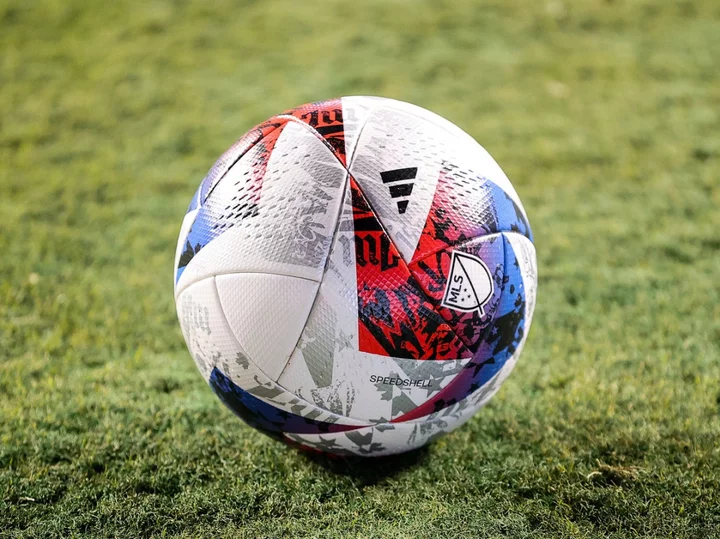Niantic's pitch for its new mobile app Peridot is enticing: Y2K-era nostalgia with the marvels of modern tech, a Tamagotchi for 2023.
If any company were to pull off such a feat, it'd be Niantic, which shifted global culture with 2016's Pokémon GO. Like Pokémon GO, Peridot uses augmented reality to layer a mystical animal — called a "dot" — over your real-life surroundings. They call it "owning a pet, without the mess" because there's nothing to clean or pick up after, and there's nothing to kill, either. In Peridot, your dot lives forever in the digital world, so the overwhelming guilt you still feel about neglecting your Tamagotchi as a kid won't apply here.
SEE ALSO: Miss your Tamagotchi? This CES-featured virtual pet includes STEM learning.But while Peridot has the potential to be way less annoying and much more magical than the turn-of-the-century Tamagotchis, its schtick gets old just as quickly.
Starting off strong (and adorable)
Peridot gameplay is pretty simple: hatch a Peridot and help it grow from baby to teen to adult by feeding and playing with it.
Your Peridot will start its life with empty "hunger" and "boredom" bars, which you'll need to fill as its "Keeper." To procure food and toys, you'll need to draw a circle on your screen to show your Peridot where to "forage" in five types of real-life "surfaces," as identified by AI: grass, plant, sand, dirt, water, and unnatural surfaces (brick, wood, and basically anything else). Each surface type yields different kinds of food and goodies, like patterned tennis balls. As you play fetch and toss them nibbles, the dots will become less hungry and more stimulated, gaining points toward their growth. Fulfilling their hourly desires, like "look at a person" or "eat a spring onion," will also earn you points. Eventually, you'll earn enough for the dot to grow into a teen, and then an adult.
Pearl as a baby, then a teen, floating around my living room and sleeping on my bedroom floor. Credit: NianticThe babies are squeak-inducing balls of fuzz with big, expressive eyes and short little legs. They can walk around on the floor of whatever environment you're in but they tend to float, too, leaving a trail of sparkling stars in their wake as they swim, wriggle, and flip in the air. This flying trait isn't just cute as hell, it's a convenient way for the game to avoid having the dots interact with objects in the environment that are harder for the AR algorithm to see or identify.
Once the dot becomes an adult, they are able to breed with other dots that are visiting nearby. You can send that dot's owner a "Hatch-A-Dot" request through Campfire, Niantic's messaging app. It's a clunky process that takes you out of the experience and requires you to actively check Campfire to see if the other Keeper has approved the request. Once they do (though sometimes they don't, probably because the Campfire feature is both hidden within the gameplay and not user friendly), an animation plays of your dot and their dot running around and swirling together until three eggs appear. Each egg's color and texture hints at the features of the baby dot inside, and an "Eggs Ray" can be purchased to see what each baby actually looks like.
Peel as a baby, hanging out in the harbor. Pitch playing fetch outside. Peel, as a teen, on a trip to a local diner. Credit: NianticI breed my first dot, Pitch, with two other dots visiting nearby by sending a "Hatch-A-Dot" request to their owners. When they approve, I hatch Pearl and Powder, who are spitting images of Pitch in different colors. That makes sense considering Pitch is one of their parents, and Pearl and Powder are half-siblings (I try to avoid thinking through this aspect of the game too often). But the game promises that no two Peridots are alike, and that there are more Peridots combinations "than there are stars in the galaxy..." so why are mine so boring?
My fourth dot is Peel, a "banana-type" archetype dot, which the game gives to me for free as a perk of being an early user. Apparently, there are 22 other archetypes the game says I should strive to hatch. But Pitch, Pearl, and Powder don't have a single archetype. This wounds my parent ego and confuses me as a user: Are my kids not all equally special?
My dot family. You can see that Powder and Pearl look just like their father, Pitch. Credit: Niantic Powder's desires for this hour: go for a short walk, practice tricks, and eat a dandelion. Credit: NianticUnderdeveloped and overly complicated
After the initial shine wears off, it becomes clear the app isn't yet ready for primetime. While the gameplay can be almost mind-numbingly simple at times, the app's layout is ridiculously cluttered and the user experience is confounding. There are all kinds of interfaces and features that could be streamlined, simplified, or clarified in their purpose. For example, I received dozens of requests to Hatch-A-Dot with Pitch, but it took me more than two weeks to realize that, in order for him to be visible to other dots, I needed to manually add him to a nearby Habitat (a physical location akin to a local watering hole for dots). But how had other Keepers been able to see Pitch and hatch with him? I've had many of these head-scratching moments since I got the app, which add to a general feeling of messiness (ironic, since the app promises to be like "owning a pet, without the mess").
SEE ALSO: Blackpink's cute free mobile game is out on iOS and AndroidAnother example is the process of trick training. You're supposed to give your dot food in exchange for practicing a trick, and you have to do this until their training is "complete." But it's unclear how to make your dot perform a completed trick in the wild without bribing them with food.
The game also taxes my iPhone 14 Pro's battery to the point of overheating. More than a few times, I have closed the game when my screen began to burn my fingertips.
And don't get me started on the two in-game currencies, which is one too many. "Gemstones" are used to purchase items in the Peridot shop and are earned by reaching a new Keeper level or as a reward for logging in every day. "Sundrops" are required to Hatch-a-Dot and are earned by completing Quests or foraging at Habitats and can also be gifted in the game. Of course, you can buy both gemstones and sundrops from the game store. I learned all this by looking it up online, because the game doesn't explain it at all.
Glitches galore: Pearl disappears into the flowers she is sniffing, desires are mistakenly listed twice, and Pitch's horn blends with his fur as he sleeps. Credit: NianticPlus, the augmented reality feature needs work. The dots glitch out almost constantly when interacting with their environment, either by blending in with their surroundings or blending in with themselves — like when their horns touch their own fur, for example. They sometimes walk in midair, followed by a shadow, as if walking on solid ground. Sometimes food will land next to the dot but they won't see it, so they'll just sit there together until the food swoops back into the knapsack it came from. The game is full of small idiosyncrasies like these that erode the joys of the user experience over time.
At a press event I attended for the app, Niantic reps said the game had been in the works for years. Unfortunately, you won't be able to tell.
But wait! There's an expensive catch
The biggest disappointment is that, after the first few delightful days of using the app, it becomes clear that once your dot reaches adulthood there's really no need to ever interact with it again. That is, unless you need them for — and I can't believe I'm writing this — breeding. It seems that the point of the game is to level up as a Keeper and discover new archetypes of Peridot, and the only way to do that is breed, hatch, and raise a dot over and over and over again.
Therein lies the rub: While your first dot is free, hatching a new one requires buying a "nest" for more than 7,000 sundrops and $4.99, something Niantic conveniently neglected to mention at the press briefing. And if you're hoping to bypass that $4.99 charge by supplementing it with more sundrops or gemstones, you're out of luck. Peridot only accepts IRL money. That means to hatch the nine dots in the game's promotional photos, you'd have to spend around $40.
A promotional image from Niantic showing nine Peridots, which would cost around $40 to hatch. Credit: Niantic The interface for a "Hatch-A-Dot" purchase. Credit: NianticTake a look at the comments on Peridot's Instagram posts, and you'll see users are not happy about this, or that there's essentially a dead end to gameplay. "Played till I got my two Dots to adulthood... haven't touched it since.. fun while it lasted," says one on a post from this week. "This game will definitely not last long at this rate. How can you create a game with the purpose of hatching and creating more creatures but you have to PAY to experience the most important feature of the game??" says another.
Peridot claims that dots were created to "cultivate whimsy in the world." But as one Instagram commenter noted, that's hard to do when it costs so much. "Nobody can play due to your greedy pay to play scam," they wrote. "The 'whimsy' is at an all time low."









